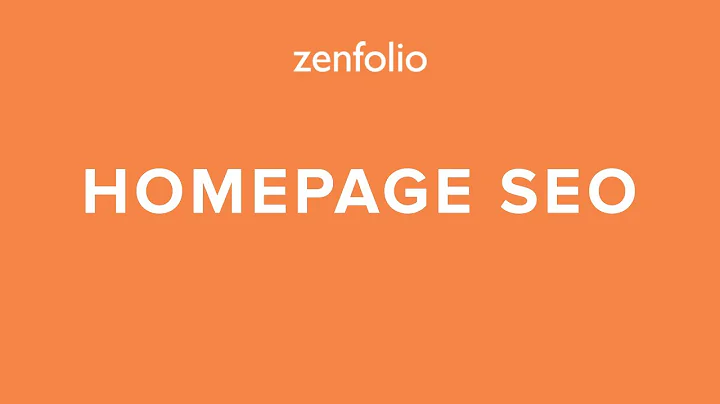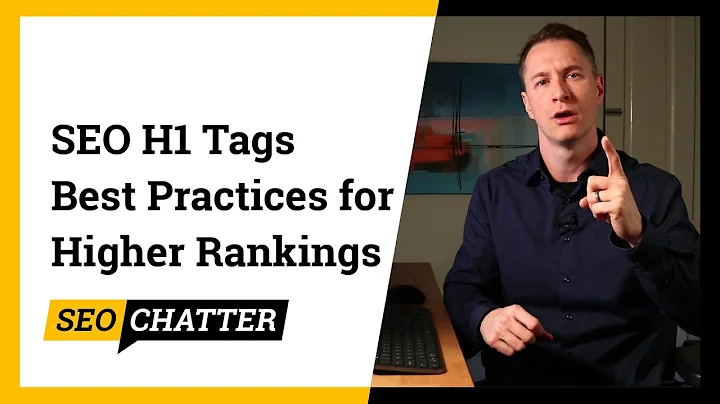SEO benefit of H1 tags on the homepage
Solution 1
There is no requirement for a homepage to include a <h1> tag and on that alone, it offers minimal weight in ranking a page anyway.
What we often do is make the company logo in the header the <h1> tag for the homepage only (which uses the brand name as offset text and alt attribute) and then every other page across the site has an appropriate text <h1> tag relevant to the page.
Solution 2
Google are going to want to see semantic markup so they can find out blindly what the page is about. The benefit of header tags to push you up the rankings is negligible (too easy to spam). However, if an element of the page is clearly the title, then using a header is good, semantic code.
There is some debate over whether the site title or the page title should get the h1 - with strong reasoning on both sides. To confuse matters, in HTML5, it could now validate if both had a h1.
I remember SEOs used to make me wrap all sorts of non-header content in header tags, which must have made using a screen reader fun. Don't do this - header tags are for marking up headers, and sub-headers. If your page reads correctly without headers, you don't need them. If you are using bold text or divs for headers, you should really be using header tags.
An opinion piece on SEO Moz said this...
This mistake is a little bit more subtle. For years, SEOmoz recommended including
keywords in the H1 of pages. After we started doing formal machine learning correlation
tests we found out that this tactic didn't actually help very much at all (including
the keywords in normal text in bigger fonts worked essentially the same). This was a
shame because it meant we wasted time and energy convincing our clients to update their
H1s.
http://moz.com/blog/whiteboard-friday-the-biggest-seo-mistakes-seomoz-has-ever-made
SEOs will often struggle on with things that used to work, forgetting that Google are constantly getting wise to their tricks.
Solution 3
Although having an <h1> is not a requirement when it comes to SEO, it is good practice to have it there. True, Google does a good job but you want your website to be as well structured as possible, meaning having good coding practices and that includes having the <h1> tag. Take a look at this blog post here http://blog.woorank.com/2013/04/how-to-use-heading-tags-for-seo/
Related videos on Youtube
Comments
-
Django Reinhardt over 1 year
I've been told by an SEO specialist that, although every other page on a website has
<h1>tags highlighting the correct headings for that page, that there needs to be one on the homepage, too.I'm dubious about this as the homepage should only rank for people searching for the company name directly -- which it already does perfectly (not least because the company name is their domain name). Obviously I don't see the harm in putting an exception in for that one page, but I also don't see the point, especially when I have lots of other more important things to be getting on with.
Are there any SEO benefits to adding a
<h1>element to the homepage, given that Google is already finding the company name perfectly well?-
Kzqai almost 10 yearsWell, here's an interesting example of why it might be useful to actually use h1: Assuming you have a logo on the homepage, how is any search engine supposed to understand that the priority of the logo's alt text is high, without it being wrapped in a "high priority" element like h1? <header> is nice too, but you could probably have a lot of images in any <header>, so what in your source code is the equivalent <h1> item for your homepage as written, and would a search engine spider really understand that?
-
-
Django Reinhardt almost 10 years@closetnoc SEOMoz have done years of machine learning and correlation tests, to see what makes a difference and what doesn't. Their conclusion was that a H1 tag (on ANY page, nevermind the homepage) was no more potent to bold text at the top of the page. Rand (founder of SEOMoz) has since gone on record to say that recommending everyone use H1 tags as one of the biggest five mistakes he ever made: moz.com/blog/…
-
Django Reinhardt almost 10 yearsI agree it's good practice elsewhere, especially for people with screen readers, but why is it good practice on the homepage? All it is going to contain is the site name, and possibly some keywords for Google. Why is this "good practice"?
-
Django Reinhardt almost 10 yearsSEOMoz's recommendation appears to be more for users than for Google ("a searcher who's just clicked on a results expects to see a matching headline on the page they visit"), but more than that, we're talking specifically about the homepage in this instance, whereas SEOMoz is talking about articles on a website.
-
 suntzu almost 10 yearsYou want the structure of your web page to be as SEO friendly as possible because after all, that's where it comes down to. You want search engines to be able to not only find you website but also to rank yours on top of others'. It might be invisible and it might seem like it doesn't really matter but truth of the matter is, it does. Try this link to validate your page without the
suntzu almost 10 yearsYou want the structure of your web page to be as SEO friendly as possible because after all, that's where it comes down to. You want search engines to be able to not only find you website but also to rank yours on top of others'. It might be invisible and it might seem like it doesn't really matter but truth of the matter is, it does. Try this link to validate your page without theh1tag and try it with and see it for yourself.




